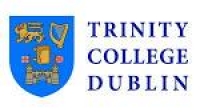






Trinity’s M.Phil. in Conflict Resolution and Reconciliation is a creative and innovative programme which is taught at our specialist cross-border School in Belfast. The programme allows students to take a broader joint-track in Conflict Resolution and Reconciliation Studies, or a distinctive specialisation in either area. The Master in Conflict Resolution specialism develops skills in conflict analysis and conflict intervention for both established practitioners and those seeking to develop their expertise. The course is designed for reflective practitioners with learning and assessment tailored to the professional context. It is taught in short-block intensives, and in partnership with professional organisations at the forefront of the field based in Belfast and Ballycastle, Co. Antrim. The Master in Reconciliation Studies specialism offers an inter-disciplinary research approach to the challenges of political and social reconciliation in the aftermath of armed conflict, drawing on politics, sociology, theology, social research and ethics. Particular attention is given to ethnic conflicts, and the role of religion in such conflicts and in peace building and reconciliation. The course combines academic study and research with community involvement and life experience. Case studies include: Northern Ireland; El Salvador; Guatemala; South Africa; Zimbabwe; Israel/Palestine; Afghanistan; Rwanda; and Sri Lanka. It equips graduates for work with local and international organisations, and provides transferable skills for a wide variety of careers, including mediation, diplomacy, policy, advocacy, journalism, teaching, and ministry, as well as Ph.D. research. After registration in Dublin at the start of the course, teaching takes place in Belfast and partner sites over two terms (September to December and January to early April). From April-July students may be based in either Belfast or Dublin depending on their research interests. A one term, non-degree programme is available and is ideal for those on sabbatical, or for those who prefer a shorter period of study. There is also the option of attending single modules. Course Content: Common core module: 1. Research Skills. Plus EITHER the required module for the Master in Conflict Resolution: 2. Conflict Analysis and Models of Intervention. OR the required module for the Master in Reconciliation Studies: 3. Dynamics of Reconciliation. Students wishing to take the dual track should take required modules for both tracks Conflict Resolution Options: 4. Conflict Resolution Skills. 5. Conflict Transformation. 6. Conflict Resolution Lessons from Comparative Peace Processes. 7. Social Research for Transformation. 8. Guided Research Project. Reconciliation Options: 9. Reconciliation in Northern Ireland. 10. Theology of Reconciliation. 11. Community Learning and Reflective Practice in Northern Ireland. 12. Post-Conflict Justice and Truth Commissions. 13. South Africa: The Ethics of Truth and Reconciliation. Modules from the M.Phil. in International Peace Studies and the M.Phil. in Intercultural Theology and Interreligious Studies (both taught in Dublin) are also open to students on the M.Phil. in Conflict Resolution and Reconciliation. Students seeking to be assessed for their work on a module in either of the two other programmes must first secure the permission of the relevant course coordinators. Dissertation: A research dissertation (15,000 – 20,000 words) to be supervised by an appropriate member of staff and to be submitted by 16 August.
| Number | Duration |
|---|---|
| 1 | year |
-